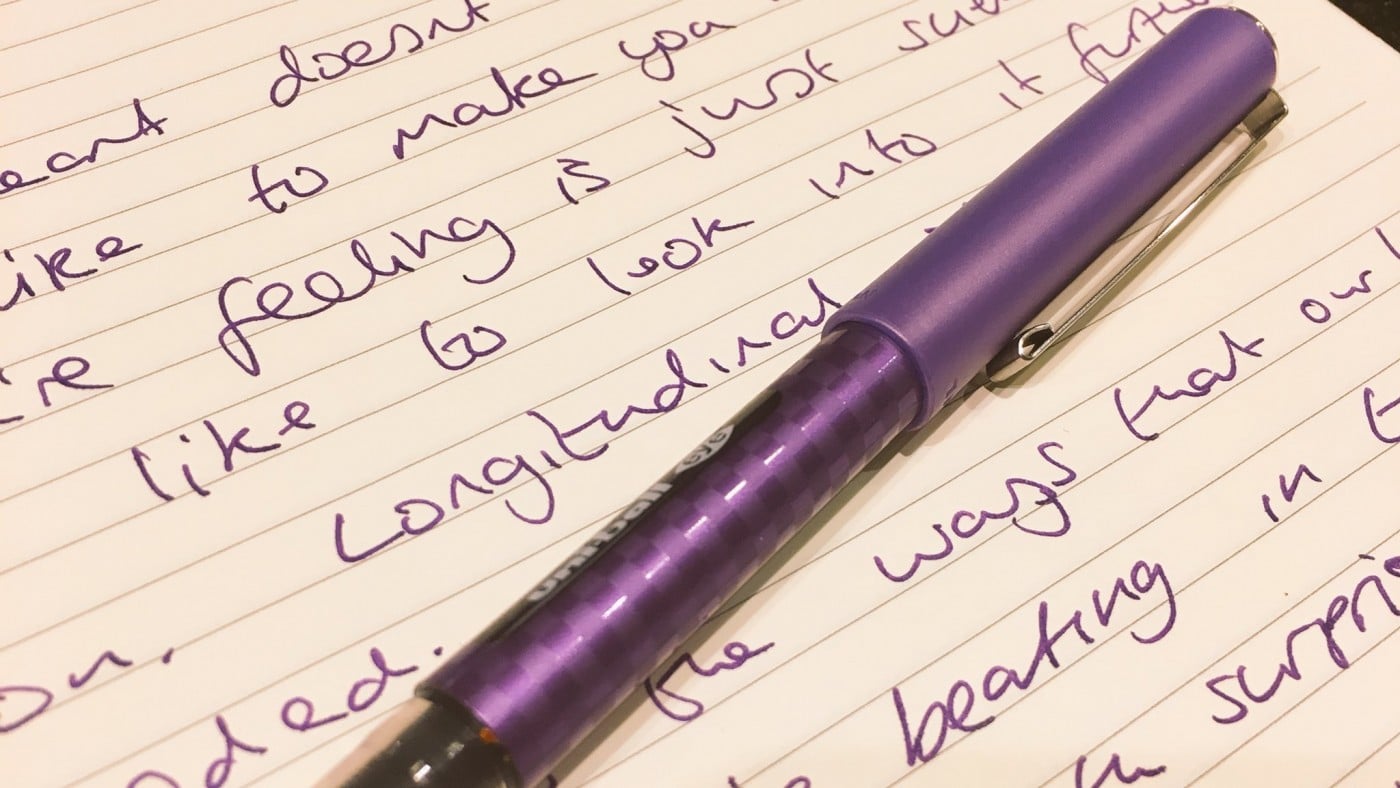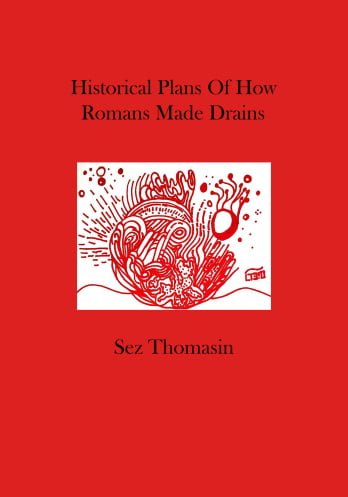
Photo: Alex Kingsley
From one of the earliest poems, Gormy, we get a clear sense of what Sez is doing here. We know this collection celebrates neurodiversity and Gormy works well as a bit of a primer for neurotypicals to gain a better insight into the work. This poem could sound dry, or boring, or prescriptive, but it’s none of those things. The humour drips thickly from the pages (and the microphone, Sez is an accomplished performer utilising their own self-defined awkwardness to great effect, both comedic and dramatic). Passages ream off about the dizzying thoughts firing off in a neurodiverse mind and explains why someone like Sez might appear gormy. I think it’s their ability to capture the slur and unpack it without bitterness or vitriol. They agree with it, “And I realise I’m my face is doing it again. / Deer in headlights. /Dazed and confused/[…]And I look gormy.” The snap back to “a technology lesson in North Yorkshire in 1993” feels like a peek into Sez’s inner experience, a thread we can follow back all the way to Amanda and how many Amandas they have met along the way.
The preceding poem, Awkward is a bit of sequel to Gormy and succinctly, definitively recounts the awkwardness of awkward; the trouble one might have spelling dyslexia, or pronouncing stutter. The ironic onomatopoeia runs deep, like a devil if you dare speak its name. “Something has been acknowledged / Been made real. / The cloud between us thickens and we choke / On consonants.” That humour, or at least light-heartedness, sits there ever-present, relatable to someone who may not have experienced perhaps the same depth or breadth of awkwardness as Sez writes about. It’s relatable but opens up a new set of thoughts and ideas about something I think we’re not hearing enough about.
The collection doesn’t rest on this self-deprecating, moxy humour however. It turns to celebrate the nuances of neurodiversity, with G.E.E.K. feeling like an anthem to the trivia-hoarding, periodic-table-reciting, celebratory geek.

It’s at a point cutting and vehement. The compact and dense poem Eye Contact feels like a slap across the face, and I certainly would cringe for whoever it was spoke the unfortunate line “Autistic people / Don’t get metaphor.” The layer is so tightly wound and intelligently placed you’d think it was just a bit of a moan but really it’s a sharp, seductive secret. An Easter egg for anyone willing to listen, and boy does it taste sweet.
This cutting honesty bursts like a dam in Mayday and reminds us to question our understanding of neurodiversity and neurotypical behaviour. A lesson we should remind ourselves of, and this poem solidifies that message very well.
Being a Scorpio, I felt personally attacked by Horoscope in the best damn way possible. The humour, some of it specific but goddam, so well placed. It’s sceptical view of astrology does not unromanticise the night sky, it actually elevates it beyond “Business advice, / Or a hint of romance, / Or a warning of fair weather friends…” and places it as a beauty to simply behold rather than trivialise with our daily lives. That would be self-indulgent, instead we are goaded into opening our eyes to the god-honest wonder of it all. “Look up at the sky: / Past the sequins and velvet. / Just try it.”

Picaroon Poetry
Sez sets up a map of their experiences; they examine themselves, the world around them, their relationships and perspectives. In Austisticus and My Heart Doesn’t Care About You, a (typically) unromantic view is shown, “We can find beauty in numbers and trains / And the intricate pattern of pattering rain / And the way the light hits the links in a chain / And historical plans of how Romans made drains,”. This felt like looking through the world from the other side of a glass-bottom boat. The view is just as beautiful, it’s just from a different perspective.
The closing stanza on My Heart Doesn’t Care About You is so good I’m not even going quote it because that would ruin it. You’ll have to read it for yourself, but I will say, for all its forensic, logical ‘unemotional’ study of their life, Sez Thomasin’s first collection is full of heart and soul. The emotional force behind this work is fuel to an incisive and direct voice so although you might think you’re reading a purely methodical study of the neurodiverse experience, you’ve got another thing coming.
Historical Plans Of How Romans Made Drains by Sez Thomasin is available to buy from Picaroon Poetry here.
Sez will headline Verse Matters in Sheffield on the 7th September. Find out more information here.



Comments